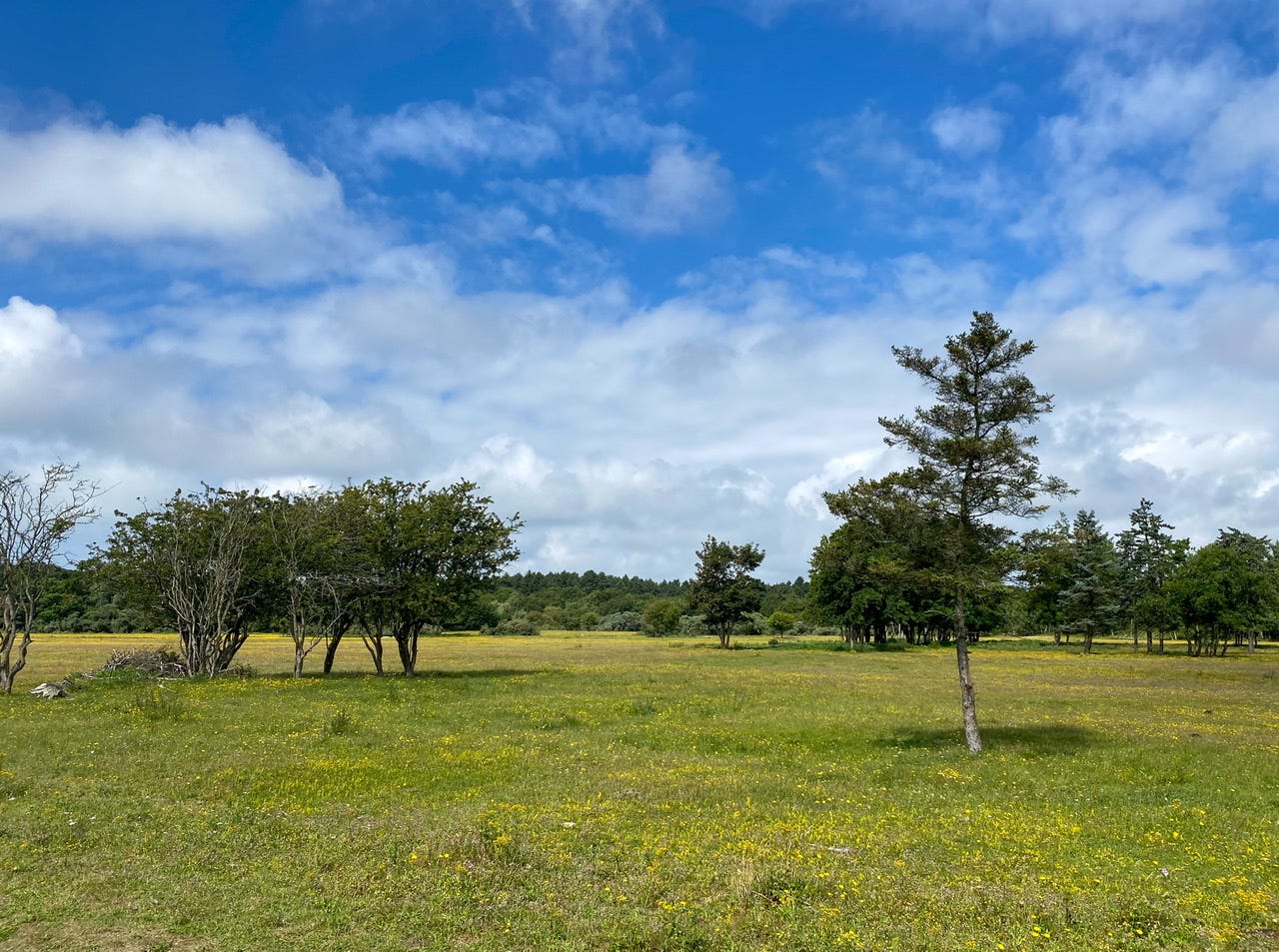#4 Rewilding a life
This newsletter is “sent from my iPhone.”
Deirdre Carasso, director of the Stedelijk Museum in Schiedam, will become the new director of the public library system in Utrecht. Congratulations! In her years in Schiedam, Deirdre has turned the museum into an audience centered, relevant public institution. (They were the first non-English participant of OF/BY/FOR ALL and have become an inspiration in the Netherlands.) I cannot wait to see the impact Deirdre will have in the library world!
I’m on a short holiday, 35 minutes from my home but in a completely different world. My phone regularly has only an “E” reception, which I consider a perk of our campsite I’d pay extra for. And it means that today’s email is about books.

Drawn by its cover, I read Rootbound: Rewilding a life by Alice Vincent and didn’t like it. The premise is right: the book describes Vincent’s journey to a life filled with nature after a personal trauma, set in London. Only, nature, in her case, is a small balcony, and the trauma is a plain breakup from which she rebounds in a few months. Not a page goes by without some sort of criticism of millennials, the generation to which Vincent (and I barely) belongs. The book covers a lot of topics but rarely does one justice.
One of my favorite “back to nature” books is Chris Stewart’s Driving Over Lemons: An Optimist in Andalucia, which I read in Spanish (Entre Limones). In it, the former Genesis drummer and travel reporter describes moving to a small farm in the south of Spain, where farming is still a part of an untamed environment. The story is over twenty years old, but time moves slowly in Andalusia. Stewart’s tale of his rediscovery of living in a respectful relationship to nature is maybe more relevant than ever.
Rootbound is influenced by Helen Macdonald’s truly magnificent H is for Hawk. Both books are autobiographical; both are about overcoming loss; both are about the rediscovery about something lost. For those who haven’t read H, in it, Macdonald tries to overcome the loss of her father by training a hawk. Ever since I’ve read it, my relationship to falconry and hawks and other birds of prey has changed completely. Instead of anonymous animals, when I see them now, I see complex, intelligent creatures that deserve our respect and admiration.
Vincent’s writing made me long for Kapuściński (Travels with Herodotus) and Dalrymple’s debut In Xanadu. Especially In Xanadu, I should say. Dalrymple published his memoir of a journey in the footsteps of Marco Polo at the age of only 22, yet can make this a timeless book by the incredible depth of his intellect and empathy.
What most annoyed me about Rootbound, though, is that it hardly (if at all) touched on the social inclusion issues related to nature. Nature and nature’s countless benefits are highly exclusive. In that sense, nature is very much like culture: it is all around us but not accessible or welcoming to large groups of people. Sure, access to nature is often free, but you need to get there. In the Netherlands, all our nature is commodified, which means the rules of its usage (no barbecues) and the supporting infrastructure (4 euro coffees) also exclude many people from participating.
It is possible to do nature differently, though. I was inspired by Richard Louv’s The Nature Principle and workshops with the State Forest Management to see nature as something that is all around us. The ducks in an inner-city pond and the weeds growing on an empty plot are nature too. When I started appreciating this everyday nature, I began a process of understanding all of nature better. Alice Vincent has a similar experience in her book, although she doesn’t recognize it as such: rewilding a life has little to do with nature, but all with your attitude towards it.
To conclude, Naturalis Biodiversity Center has, for the past few years run a program called Nature around the corner, based on similar principles. They help kids with limited access to culture or nature to appreciate and take ownership of nature in their community. I’m sure this program will educate an author who may write about rewilding their life, and I cannot wait to read their book.

Thanks a lot for signing up for this newsletter and the replies that you’ve sent me. Yes: you can send me documents and links and ideas (and I especially like book recommendations. I read anything.)
I didn’t write about running, the sea, camping in times of COVID-19 or the other books I read. All of that, and more, in a future email!
— Jasper
